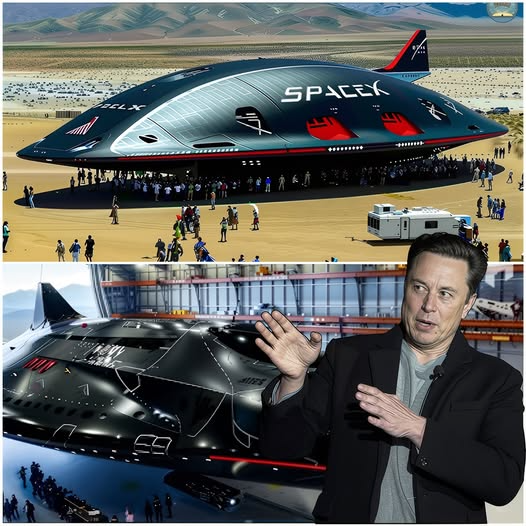Travis Kelce and Taylor Swift quietly donated $250,000 to the hospital where the doctor once saved Taylor’s dad from cancer — but what waited on the 3rd floor hallway caught them completely off guard…
The oncology wing at Boston Memorial lacked equipment for 2 years. Travis and Taylor funded 3 new MRI machines. During their visit, they were taken to the 3rd floor — where a photo of Taylor and her dad from his final day of chemo 12 years ago still hung on the wall…️️
The sterile scent of antiseptic lingered in the halls of Boston Memorial Hospital, but for Taylor Swift and Travis Kelce, the air carried something heavier—gratitude, memory, and a quiet sense of purpose. They had slipped into the city unannounced, their $250,000 donation to the hospital’s oncology wing made without fanfare. It was a gift born of personal history: this was the place where, twelve years ago, a doctor had saved Taylor’s father, Scott Swift, from cancer. The couple had funded three state-of-the-art MRI machines to replace equipment the wing had lacked for two years. But as they walked through the third-floor hallway during their private visit, something unexpected stopped them in their tracks—a faded photograph on the wall that brought the past rushing back.
Boston Memorial’s oncology wing had been a beacon of hope for countless families, but budget cuts and aging infrastructure had left it struggling. For two years, the wing operated with outdated MRI machines, forcing patients to endure long wait times or travel for scans. When Taylor learned of the shortage, she thought immediately of her father’s battle with cancer and the doctor whose skill and compassion had given him a second chance. She and Travis, whose own family had faced medical challenges, didn’t hesitate. Their donation was more than a check—it was a promise to ensure no patient would face delays in care.

The hospital staff, sworn to secrecy to avoid media attention, welcomed the couple warmly. Dr. Emily Chen, the oncologist who had treated Scott Swift years ago, led them through the renovated wing. The new MRI machines gleamed in their suites, their soft hum a sign of lives that would be saved. Travis, towering and usually boisterous, was quiet, taking in the weight of the place. Taylor, her hand in his, listened as Dr. Chen described how the machines had already reduced wait times by half. “You’ve given us tools to fight,” Dr. Chen said, her voice thick with emotion. “You’ve given families hope.”
As the tour continued, Dr. Chen guided them to the third-floor hallway, a place Taylor hadn’t seen since her father’s final day of chemotherapy. “We have something to show you,” Dr. Chen said with a knowing smile. The hallway was lined with patient photos—a tradition to honor survivors and those still fighting. Taylor’s eyes scanned the walls, expecting nothing more than a nod to the wing’s history. Then she saw it: a framed photo, slightly faded but unmistakable, of her and her father. Scott, bald from chemo but grinning, sat in a hospital chair, his arm around a younger Taylor, who beamed with relief. The date on the frame read twelve years ago—the day Scott had rung the bell signaling the end of his treatment.
Taylor gasped, her hand flying to her mouth. Travis, standing behind her, leaned closer, his eyes widening. “Is that…?” he started, but Taylor was already nodding, tears welling. The photo captured a moment she’d never forgotten: the day she knew her dad would be okay. She remembered the hospital gown, the cold chair, the way her dad’s hand felt in hers. She remembered the doctor’s quiet confidence, the nurses’ kindness, and the overwhelming gratitude that had filled her heart. But she hadn’t known the hospital had kept this photo, let alone displayed it for over a decade.
Dr. Chen stepped forward, her voice soft. “This photo has been here since your dad’s last day. It’s one of our favorites. Patients see it and feel hope. Your family’s story has inspired so many.” Taylor, usually so composed, let out a shaky breath. Travis wrapped an arm around her, his own eyes misty. “You never told me about this,” he said gently, looking at the photo. Taylor shook her head, still stunned. “I didn’t know it was here,” she whispered. “I didn’t know they kept it.”
The photo was more than a memory—it was a symbol of survival, of love, of the hospital’s unwavering commitment to its patients. Taylor traced the frame with her fingers, her mind flashing back to those grueling months. She’d been in her early twenties, her career just taking off, but nothing mattered more than her dad’s health. She’d spent hours in this hallway, pacing, praying, and holding onto hope. Scott had fought hard, and Boston Memorial had fought with him. Now, standing here with Travis, Taylor felt the full circle of that journey.
Travis, sensing the depth of the moment, turned to Dr. Chen. “How many people see this photo every day?” he asked. “Hundreds,” she replied. “Patients, families, staff. It’s a reminder that there’s light at the end of the tunnel.” Travis nodded, then looked at Taylor. “Your dad’s story is still saving people, Tay. And now, with these machines, we’re helping even more.” His words broke through her tears, and she smiled, squeezing his hand. “We’re doing this together,” she said.
The moment inspired a decision. Taylor asked Dr. Chen to keep the photo on the wall, but she also requested a small plaque beneath it. “Let it say, ‘In gratitude to Boston Memorial, from the Swift and Kelce families,’” she said. “This place gave me my dad back. I want everyone to know what it means.” Dr. Chen agreed, her eyes shining. The plaque was added within days, a quiet tribute to the hospital’s impact and the couple’s generosity.

As they left the hospital, Taylor and Travis walked hand in hand, the weight of the photo lingering. They didn’t speak much, but the silence was full of understanding. Later, at a small dinner with Scott, Taylor shared the story of the photo. Scott, now healthy and vibrant, teared up. “That was the best day,” he said, pulling Taylor into a hug. “Not just because of the chemo ending, but because you were there.” Travis, watching the father and daughter, felt a swell of pride. Their donation wasn’t just about machines—it was about moments like this, about families reunited and futures reclaimed.
The third-floor hallway at Boston Memorial became a place of pilgrimage for patients. The photo of Taylor and Scott, now accompanied by the plaque, stood as a beacon of hope. Nurses pointed it out to new patients, saying, “Look at them. They made it. You can too.” The MRI machines hummed daily, saving lives with every scan. And though Taylor and Travis never sought recognition, word of their gift spread quietly, inspiring others to give.
Years later, Taylor returned to the hospital alone, standing before the photo once more. Her dad was still cancer-free, and the wing was thriving. She touched the plaque, her heart full. The hallway was quiet, but the echoes of her father’s laughter, the doctor’s care, and Travis’s steadfast support filled the space. The photo on the wall wasn’t just a memory—it was a promise that hope endures, that love heals, and that one act of kindness can change everything.




